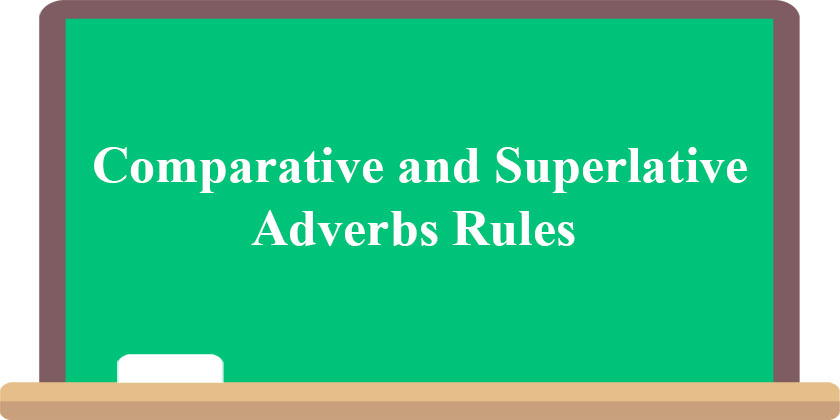
Comparative and Superlative Adverbs Rules
Comparative Adverbs: Adverbs in the comparative form describe verbs, adjectives, and other adverbs. Learn more about adverbs by clicking here.
Adverbs usually end in “ly”
Making the comparative form for adverbs is not as easy as making the comparative form for adjectives. Remember, most adverbs end in “ly,” so most adverbs are two-syllable words; therefore, you will usually use “more” in front of the adverb to make the comparison. Many Americans ignore the rules for comparative adverbs, but you should still learn how to use them properly.
- A subway train can get you through the city more quickly than a bus.
(“more quickly” describes the verb “get.” “Get” is a verb.) - A laptop computer allows her to do her work more efficiently.
- Barack Obama campaigned more skillfully than his opponents, and that’s one reason why he won his election.
Some adverbs have only one syllable and don’t add “ly.”
fast, hard, soon, high
- She works faster than he does.
- He can reach higher than she can.
- They’ll finish their work sooner than they did last week.
The opposite of “more” is “less.”
- He is less easily disturbed by her behavior than he was in the past.
Superlative Adverbs:
Adverbs in the superlative form describe verbs, adjectives, and other adverbs.
Making the superlative form for adverbs is even more difficult than the comparative form. Many Americans avoid doing it, so you might not hear it used very often.
- He rides his bike most frequently in the morning.
- I work at school and at home during the week, but I work most comfortably at my desk on the weekend.
- She is most likely to become a doctor after she finishes med school.
Was the lesson helpful? Please feel free to write your feedback about the lesson in the comment box below. We work together to provide more useful articles to help people learn ESL.
